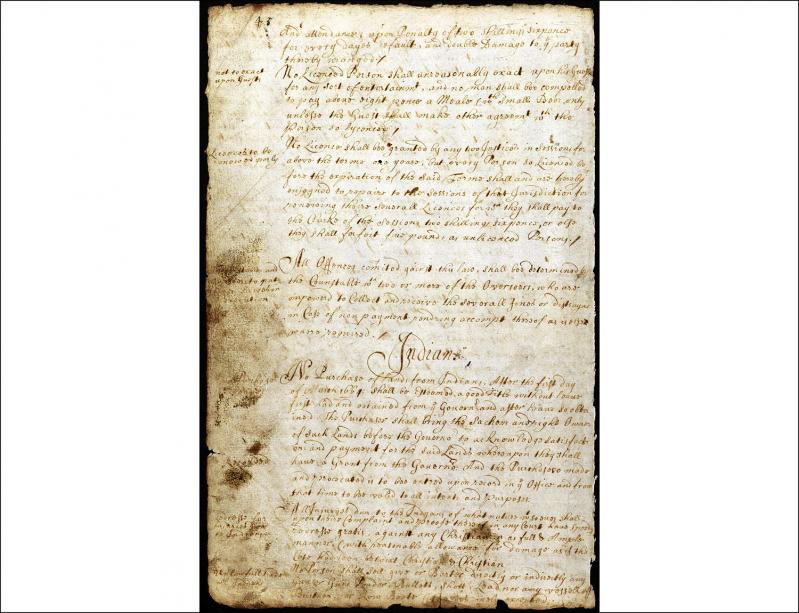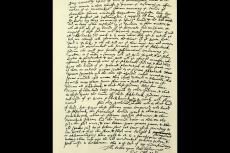The volume seen here, from the historical records of East Hampton Town, is an original copy of the legal code established by James, Duke of York (later King James II of England). The Long Island Collection also owns a partial copy from the Hempstead Convention.
Written after the British captured New Amsterdam from the Dutch, the Duke’s Laws attempted to establish uniformity in local laws throughout the New York Colony. The Duke of York delegated this compilation to the colony’s governor, Richard Nicolls, and his lawyer-brother, Matthias Nicolls, secretary of the colony. To gain support from New Yorkers, Nicolls held a political convention in Hempstead, previously a Dutch territory, attended by deputies from Westchester settlements and every Long Island town. Towns received their own hand-copied editions of the Duke’s Laws, although different copies are known to have slight variations in wording.
The Duke’s Laws entitled New Yorkers to trial by jury and established wealth-proportionate taxation. The laws specifically addressed religious practice, requiring ministers to preach on Wednesdays and Sundays, and detailed the capacity of churches (200 people). Surprisingly, they did not require devotion to a specific Protestant sect, but they banned Catholicism, along with the practice of Indigenous religions. Indigenous New Yorkers were also required to fence their crops. Additional clauses specified what bounties could be kept from a beached whale and forbade making arrests on a Sunday.
The Duke’s Laws marked a shift from local town governments operating relatively independently to a more centralized legal system, with laws originating primarily with a governor and the king. This shift was unpopular in East Hampton, where the local town government previously enjoyed great legal and legislative independence. Local residents including the Rev. Thomas James (1620-1698) and Samuel (Fish Hooks) Mulford (1644-1725) responded critically, pushing for more representation and arguing against British efforts to redefine local taxes, quitrents (fees paid to get out of indenture), and boundaries, even after the New York Assembly repealed the Duke’s Laws in 1684.
—
Andrea Meyer, a librarian and archivist, is the Long Island Collection’s head of collection.




